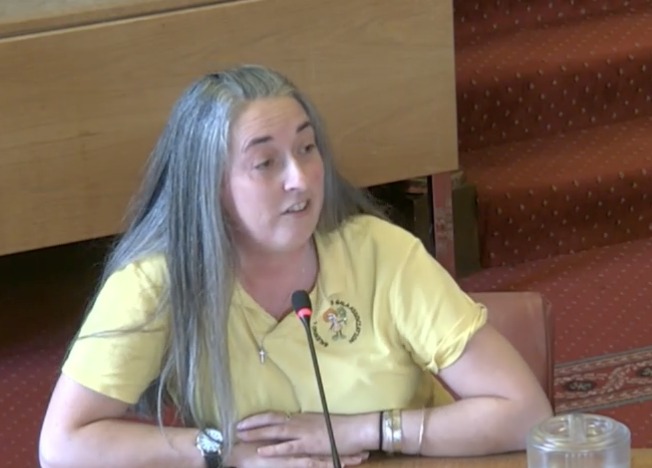Licensing charges endangering gala days
Councillors were warned that gala days in Edinburgh are “close to folding” due to organisers having to fork out thousands on permissions to set up bouncy castles and funfair rides.
Concerns over the impact of licensing fees on the future of the much-loved community events have led the council to agree to a re-think of the “contentious” policy which means that gala committees pay the same rates as commercial operators.
Caitlin Boddy, from Balerno Children’s Gala Committee, said increasingly organisers are being forced to reach out to their local communities for extra funding and volunteers are overwhelmed by the “time and stress” involved.
Speaking on behalf of eight Edinburgh gala associations at the Regulatory Committee on Monday she said: “The costs associated with running our events have got to a point that actually a number of the events are close to folding.”
Ms Boddy said more than £4,000 had to be spent on ‘amusement device’ licences for bouncy castles and other inflatables for Balerno’s gala day this year – on top of hiring costs.
“We seem to be charged the same per ‘amusement device’ as big commercial operations that maybe run for up to 28 days,” she said. “That just doesn’t work for us, it just doesn’t work.
“Not only does it not work financially, but actually the amount of time and stress that went into it this year was just not okay. We have committee members saying ‘I am not going through that again’ and there’s a number of other gala organisations who are close to folding.
“So really I’m just pleading that you recognise that these gala events that are put on are not big commercial 28-day festivals – they’re a bunch of volunteers trying to do something nice for the children.”
Basic public entertainment licences (PELs) for gala days are “heavily discounted” compared with commercial events, costing less than £200 if for 2,500 or fewer attendees – but issues often arise where organisers “invite a commercial funfair organiser to provide funfair rides at the gala,” a report said.
It added: “The council’s long-standing position is that these funfair rides should not be included under the licence granted to the community group, as the reduced fee was never intended to cover what is commercial activity.
“In addition, a community group would not normally have the skills or experience to safely manage funfair rides.”
Regulatory Services manager Andrew Mitchell said the fee was “designed for commercial operators of amusement devices” but admitted it was “not suitable” for community groups who wanted to to operate funfairs.
He said: “Our practice should be that any commercial operator of a funfair would obtain their own licence; it’s not appropriate for community groups to seek to licence these devices, not least because of them not having the skills available to operate safely funfairs.”
However he said there had been instances in the past where community groups “have been able to obtain the amusement devices element of the public entertainment”.
He added: “Given the concerns that have come through this summer, I think the department is recommending that if we re-look at this whole issue it would allow a re-examination of where there’s distinction between who’s licensed for what, and indeed a fee structure and allow committee to consider afresh whether or not the current arrangements would be appropriate.”
The report said plans for “amending the fee structures” will be brought forward next year following engagement with stakeholders.
Furthermore it revealed there were “a number of inconsistencies” regarding application fees charged to gala groups this year “in part due to information provided by applicants, and also due to the service’s interpretation of the information provided”.
It added: “Due to these inconsistencies, a refund of two thirds of the fee paid was made to all affected organisers in order to ensure fairness and transparency.”
by Donald Turvill Local Democracy Reporter
